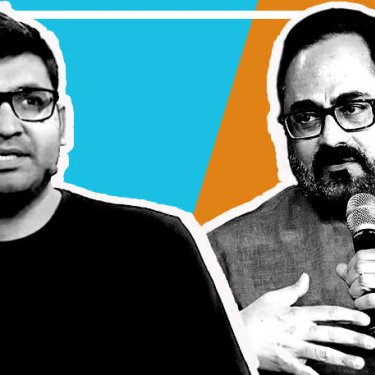RSF tools could help resolve conflict between India and Twitter

For several months, Twitter and the Indian government have been engaged in a tussle involving two misconceptions about the online flow of information that ended up in court last week. Reporters Without Borders (RSF) is ready to offer each party appropriate and trustworthy tools that address the prevailing information chaos.
Conflicts of this kind will inevitably recur and intensify in the years to come. This case pits the authorities of the planet’s second most populous country, who are concerned about online criticism, against a Californian microblogging platform with a market capitalisation said to exceed 40 billion dollars, which wants to keep the workings of its algorithms secret.
It intensified last week when Twitter turned to a court in the southern city of Bangalore to challenge content removal orders issued by New Delhi as “overbroad and arbitrary” and conducive to “disproportionate” censorship.
The same day, the Ministry of Electronics and Information Technology, also known as the MeitY, formally rescinded Twitter’s status as an online intermediary, which had given it immunity from being held liable for the content posted by its 230 million users in India.
Neither the state nor profit
This decision followed a MeitY statement in late June giving Twitter “one last opportunity” to comply with requests for the removal of content – content regarded by some as incitement to hatred. Twitter had not complied.
“A fundamental issue is at stake in the dispute between India and Twitter,” said Daniel Bastard, the head of RSF’s Asia-Pacific desk. “It is about ensuring freely reported and reliable information that is regulated according to open and transparent principles. It is definitely not a government’s job to decide what its citizens can or cannot say in the public sphere. And it is equally regrettable that, for the sake of greater profits, a multinational company allows its algorithms to give certain extreme content more prominence than safe and verified information. Civil society must be returned to the centre of these concerns, as RSF does in the tools it has developed to combat the information chaos.”
The MeitY moved against Twitter under its “IT Rules,” a set of digital regulations adopted in 2021 that are often used to order online platforms to remove content that is not to the government's liking, such as content related to the situation in Kashmir or the massive farmers' protests in northern India in 2020 and 2021.
Censorship dangers
The government recently announced that it wanted to make these rules even tougher, including by means of the creation of government-appointed “Grievance Appellate Committees” to address “grievances” and demand the removal of offending content. In response to the MeitY’s request for feedback from stakeholders in a “public consultation,” the Forum on Information and Democracy – an RSF offshoot – submitted its recommendations on 6 July, the day after the dispute between Twitter and New Delhi came to a head.
The Forum’s feedback stressed the danger of outright censorship that would result from the MeitY’s proposed reforms in their current form, as content could be removed within 72 hours without grounds being given and without any possibility of appeal.
The Forum also voiced concern about the failure to ensure that the members of the Grievance Appellate Committees are independent, saying they should be appointed on the basis of competence and not political criteria. Oversight by a parliamentary committee comprising representatives of both ruling and opposition parties would help to ensure that the Grievance Appellate Committees were independent, the Forum added.
Self-assessment, transparency and accountability
As for Twitter and its commercial concerns, RSF has created a self-regulatory ecosystem for the digital universe and online platforms in the form of the Journalism Trust Initiative (JTI). This is an unprecedented transparency tool that aims to promote trustworthy journalism online by means of mechanisms for media self-assessment and for enabling news media to get social media to take account of the quality of their journalism, including their research and fact-checking.
By integrating the JTI’s principles into its algorithms, Twitter would have a credible response to offer governments such as India’s, and would serve as a global trailblazer, championing healthy content regulation based on transparency and accountability
- Asia - Pacific
- India
- Legal framework and justice system
- Disinformation and propaganda
- International laws and governance
- Digital space and democracy
- Independence and pluralism
- News
- Advocacy
- Recommendations
- Litigation and legal initiatives
- Multinational corporations
- Press freedom
- Freedom of opinion and expression
- Right to news and information
- Democracy
- Digital arena
- Internet
- Platforms
- Technology
- Politics
